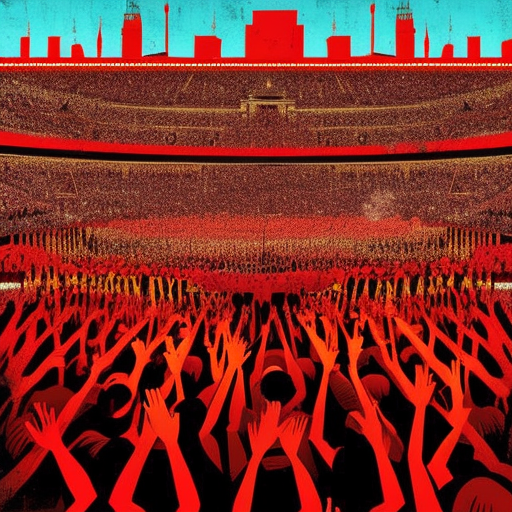Summary:
The Communist Manifesto, written by Karl Marx and Friedrich Engels, is a political pamphlet that outlines the principles and goals of communism. It argues that the history of society is a history of class struggles, and that the capitalist system is inherently exploitative. The authors advocate for the overthrow of the bourgeoisie and the establishment of a classless society where the means of production are owned collectively. They believe that this revolution will ultimately lead to the liberation of the proletariat and the end of class oppression.
Historical Materialism and Class Struggle
Marx and Engels begin by introducing the concept of historical materialism, which asserts that the development of society is determined by the material conditions and the mode of production. They argue that throughout history, societies have been divided into different classes based on their relationship to the means of production. They identify the bourgeoisie, the ruling class who own the means of production, and the proletariat, the working class who sell their labor to survive.
The authors contend that the bourgeoisie exploits the proletariat through the extraction of surplus value, where workers are paid less than the value they produce. This exploitation leads to increasing inequality and alienation for the proletariat. They argue that the class struggle between the bourgeoisie and the proletariat is the driving force behind historical progress.
The Communist Revolution
Marx and Engels advocate for the overthrow of the bourgeoisie and the establishment of communism. They argue that the proletariat must unite and seize political power in order to abolish private property and the capitalist system. By doing so, they believe that the means of production will be collectively owned and controlled, leading to the elimination of class distinctions and the establishment of a classless society.
The authors acknowledge that the ruling class will not willingly give up their power, and that revolution is necessary to achieve their goals. They call for the formation of a communist party that will lead the proletariat in this revolution. They also emphasize the importance of international solidarity among the working class, as they believe that capitalism is a global system that can only be overthrown through international cooperation.
Critique of Capitalism
Throughout the manifesto, Marx and Engels critique various aspects of capitalism. They argue that capitalism is inherently unstable, with periodic economic crises and the constant drive for profit leading to overproduction and unemployment. They also criticize the commodification of labor, where workers are treated as mere commodities to be bought and sold.
The authors highlight the contradictions within capitalism, such as the concentration of wealth in the hands of a few while the majority struggle to make ends meet. They argue that capitalism creates a society where everything is reduced to exchange value, eroding social relations and human dignity. They believe that only through the abolition of capitalism can these contradictions be resolved.
Key Takeaways:
- Historical materialism: The development of society is determined by the material conditions and the mode of production.
- Class struggle: The conflict between the bourgeoisie and the proletariat is the driving force behind historical progress.
- Communist revolution: The proletariat must unite, seize political power, and establish communism to eliminate class distinctions.
- Critique of capitalism: Capitalism is inherently exploitative, unstable, and erodes social relations.
“The proletarians have nothing to lose but their chains. They have a world to win.”
– Karl Marx and Friedrich Engels
In conclusion, The Communist Manifesto provides a comprehensive critique of capitalism and outlines the principles and goals of communism. It argues for the overthrow of the bourgeoisie, the establishment of a classless society, and the liberation of the proletariat. The manifesto continues to be influential in shaping political and social movements around the world, and its ideas remain relevant in the ongoing struggle for social justice and equality.












